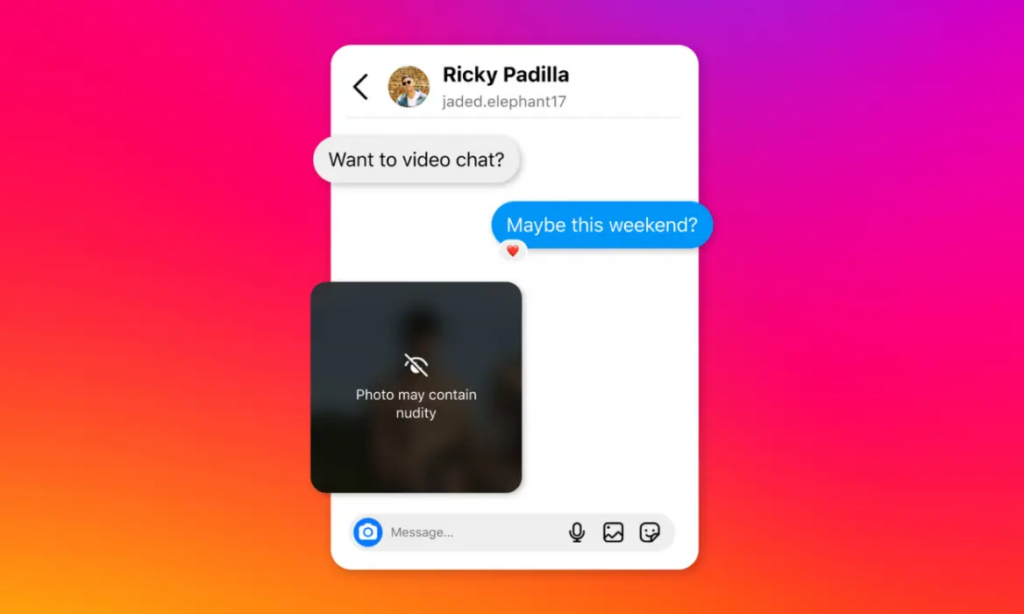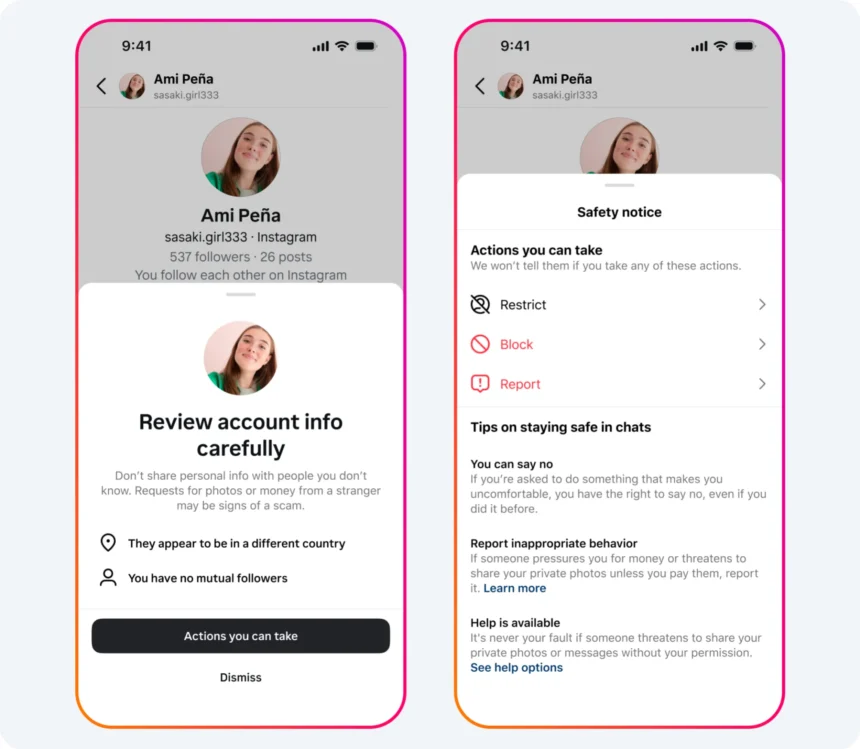Instagram is launching a safety initiative designed to protect teens from sextortion scams. This new effort comes in response to troubling trends where scammers manipulate young users into sharing explicit images and then blackmail them. Reports indicate sextortion cases have increased by 300% between 2021 and 2023, prompting Meta to introduce educational content and new security features to safeguard Instagram’s most vulnerable users.
What’s Happening & Why This Matters
Meta, Instagram’s parent company, unveiled a new safety campaign aimed at educating teens about the dangers of sextortion. Sextortion involves bad actors tricking teens into sharing sensitive images, which are then used to extort money or other favors under the threat of exposure. Tragically, some teens have taken their lives after falling victim to these scams, which have been spreading rapidly.
Instagram is responding by partnering with the National Center for Missing and Exploited Children (NCMEC) and the anti-abuse nonprofit Thorn to create a series of educational videos. These videos are designed to teach teens how to identify threats early and offer guidance on what steps to take if they encounter sextortion attempts. These resources are being distributed to users in high-risk countries such as the US, UK, Canada, and Australia, where these scams are most prevalent.
In addition to education, Instagram is rolling out safety tools to reduce the risks of sextortion. One key feature is nudity protection, which automatically blurs explicit images in direct messages (DMs) and provides warnings to users. This protection, tested earlier this year, is automatically enabled for users under 18.

Instagram is also enhancing privacy settings to prevent scammers from easily exploiting teens. For example, users will no longer be able to screenshot images sent through the “View Once” or “Allow Replay” features, making it harder for extortionists to collect compromising material. Other updates include preventing scammers from sending direct messages (DMs) to teens who do not follow them and blocking the ability to view a teen’s following list to stop blackmail attempts.
Meta has acknowledged that sextortion scams often involve users pretending to be from the same country to gain trust. In response, Instagram will now notify teens if the person they are chatting with is located in a different country — though it’s noted that scammers could bypass this by using VPNs. Moreover, Instagram will soon offer in-app support for victims of sextortion in the US, allowing users to connect with crisis counselors through the Crisis Text Line for 24/7 confidential support.
Despite these new efforts, Meta continues to face criticism for not addressing the problem earlier. Annie Seifullah, a lawyer involved in numerous sextortion cases against Meta, expressed frustration that the platform has been aware of the problem for years, calling the current measures “too little, too late.”

TF Summary: What’s Next
Instagram’s new campaign represents an important step in protecting teens from online exploitation, but ongoing efforts will be crucial to fully address the problem. Meta faces mounting pressure to do more as teen sextortion cases grow and concerns about mental health on the platform persist. It is imperative for Instagram to monitor the effectiveness of these new tools and commit to refining their approaches to safeguarding young users.
— Text-to-Speech (TTS) provided by gspeech


